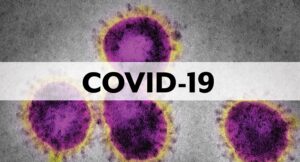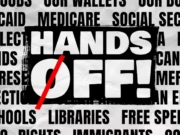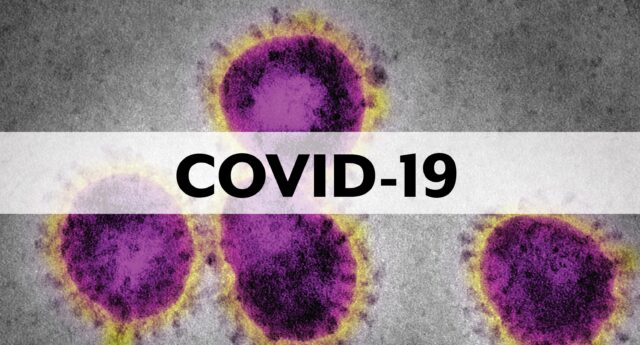
Deerfield-News. com-Deerfield Beach, Fl-From Safety.com
How to Protect Your Family After Being Discharged From the Hospital With COVID
As we approach almost eight months since coronavirus steamrolled into our world, the disease still remains shrouded in mystery while the world’s brightest minds continue to work toward a cure.
With Donald Trump’s coronavirus diagnosis, Americans learned that COVID-19 spares no one, not even the President of the United States. However, President Trump’s short stay and discharge from Walter Reed Military Hospital left many puzzled, wondering how safe it could be to leave the facility when he could still display symptoms.
COVID is marked by symptoms that can run from mild to severe, including chills, muscle aches, sinus problems, upset stomach or diarrhea. These symptoms can disappear long before your COVID test comes negative, which is confusing to many people trying to identify their risk.
“The updated criteria reflect recent findings that patients whose symptoms have resolved may still test positive for the COVID-19 virus (SARS-CoV-2) by RT-PCR for many weeks,” says the World Health Organization in its May 2020 guidelines.
“Despite this positive test result, these patients are not likely to be infectious and therefore are unlikely to be able to transmit the virus to another person.”
The COVID Discharge Process
It sounds relatively simple, but it’s a different matter entirely when you live and breathe the consequences of the virus every day like James Cobb, RN, MSN. Cobb is a front-line emergency department nurse who fights the virus every day. In his spare time, he writes and maintains his blog, The Dream Recovery System, that reinforces sleep and healing benefits.
“For many COVID-positive people, it feels like a death sentence simply because you don’t know what will happen,” he explains, thinking of the many patients he encounters on a daily basis. “Will you be fighting for your life? Or will it be simply like a case of the flu? Those questions don’t end even after you’re discharged from the hospital.”
Marked by days of isolation and endless nights of misery, coronavirus is a trying experience for all involved. The illness affects far more than just the patient’s wellbeing; it also significantly impacts the entire family and support network, as well.
“Getting discharged from the hospital after COVID can severely test family and relationship bonds,” says Cobb. “Family members are supposed to support each other when they’re needed. This is one of those times.”
Whether you or a loved one are discharged from the hospital, here are the best tips to help protect your family when someone is recovering from COVID under your roof.
Discharge Instructions
The American Hospital Association (AHA) provides a helpful Checklist for Discharging Patients with COVID-19 to medical facilities around the country.
“The CDC has clarified that patients with COVID-19 can be discharged from a healthcare facility to both home and long-term care facilities when clinically indicated,” it reads. “The decision to discharge patients should be made in collaboration with the patient’s clinical care team and the state health department.”
Before a patient is discharged from the hospital, AHA recommends medical personnel confirm that the patient is clinically stable and able to successfully maintain home-isolation recommendations.
There is a serious question of suitability when it comes to a patient’s home. The CDC encourages healthcare professionals to carefully consider whether a patient’s home poses additional risk at time of discharge. These are some questions to ask.
- Is the patient stable enough to receive at-home care?
- Are there appropriate caregivers within the home?
- Is there a separate, private space that the patient can use to recover without interference from others? (This means no shared bedrooms.)
- Will there be adequate access to food, water and other necessary resources?
An additional requirement is that “the patient and other household members are capable of adhering to precautions recommended as part of home care or isolation.”
Your medical provider will review with you and your caregiver instructions for your specific at-home care.
How to Protect Your Family After Discharge
Coronavirus is a rapidly-changing illness that can present severe symptoms at random. That’s why everyone in the household must be prepared to do their part in keeping the home safe and helping the family recover.
These are the five top expert tips to protect your family after being discharged from the hospital with COVID.
Clean and clean some more.
When you first return home from the hospital, it is imperative that you and your caregiver remain diligent about cleaning your home. This includes regularly sterilizing all surfaces with an EPA-approved disinfectant to prevent the spread of bacteria.
Reconfigure the house.
You will need to maintain your own space to minimize the spread of COVID in your home.
“The family would do well to reconfigure their house temporarily,” advises Cobb. “The recovering person should have their own room and bathroom. If a bathroom has to be shared, disinfectant wipes are handy to keep the surfaces clean.”
Isolate whenever possible.
According to CDC guidelines, “People should adhere to home isolation until the risk of secondary transmission is thought to be low.”
Nick Bryant is a COVID-19 Contact Tracer in Houston, Texas where he is the Owner and Counselor of HoustonCaseManagers.com. Here, he leverages the benefits of the Digital Age, suggesting the usage of delivery services to minimize contact.
[ Read: Can Smart Home Devices Help Protect You From Coronavirus? ]
“You can avoid public places like grocery stores by ordering groceries during your quarantine through a program called Amazon Pantry,” he says. “This program delivers fruit, vegetables, milk, and other foods to your doorstep. It also helps low-income families by accepting SNAP benefits (food stamps). Therefore, you can use your EBT card to order from the Amazon website.”
If you have trouble finding available cleaning supplies to buy, a little creativity can go a long way. “If your local Wal-Mart or Dollar Store is out of disinfectants like Lysol, consider janitorial supply stores as a back-up plan,” he says. “These stores sell cleaning supplies and toilet paper in bulk, are less crowded than big box stores, and the shelves are typically full, due to this relatively unknown option.”
Reach out for support.
As a community counselor, Bryant works closely with his fellow Houstonians every day, helping them adjust to life during the pandemic.
“Being discharged from the hospital can be scary because for some there is the fear of ‘What if things get worse once I return home?’” he explains. “Luckily, most cities (and insurance plans) have free nurse health lines that you can call to talk about any lingering symptoms of COVID-19 or any other conditions that you are concerned about.”
Sometimes it’s about comfort just as much as it is medical counsel. “These nurse helplines can provide reassurance that everything will be ok, especially for those who have to isolate alone,” says Bryant.
Keep a sense of humor.
“The healthy members of the family may be tempted to dismiss COVID and say, ‘So what if I get it? I’m healthy!’” Cobb says, but that’s one of the worst things you can do. “Don’t! Avoid it as best as you can!”
Instead, a healthy attitude is everything.
“As with practically every other illness, thriving while coping takes a mixture of planning and humor,” he says, describing his emergency room philosophy. “To really cope well, however, one needs to find the humor in the situation.”
The Bottom Line
COVID is presenting many challenges to families all around the world as cases continue to mount and studies remain in progress. However, a little patience and a lot of caution can make all the difference.
“COVID is like pretty much every other sickness and disease. There’s no new angle when it comes to preventing it,” says Cobb simply.
That doesn’t mean coronavirus has dampened his mood. “My big tip to offer after a COVID diagnosis is to try to keep everyone’s mood up in the way that fits your personality. Laugh about it. Joke. Not bitterly, but in a way that shows you’ve accepted it, and you love them.”
“This, too, shall pass.”
Photo by Chinapong / GettyImages




































